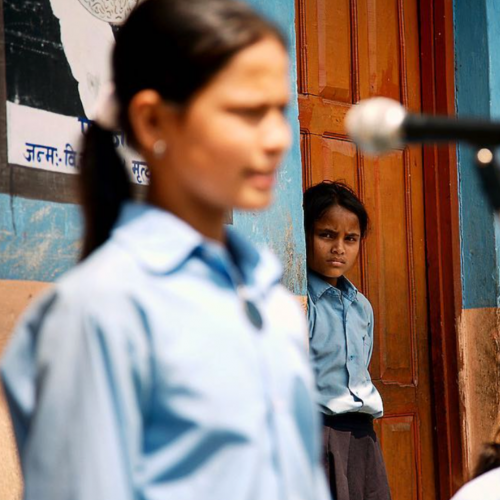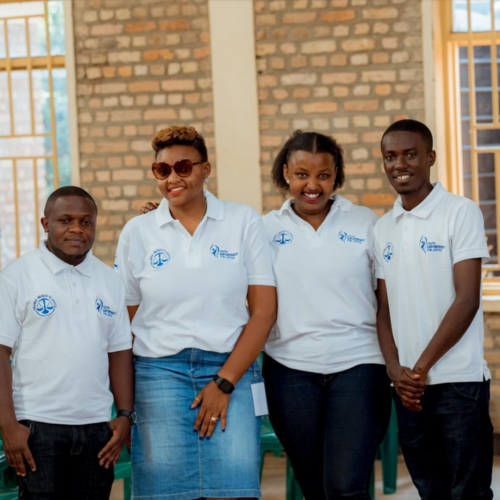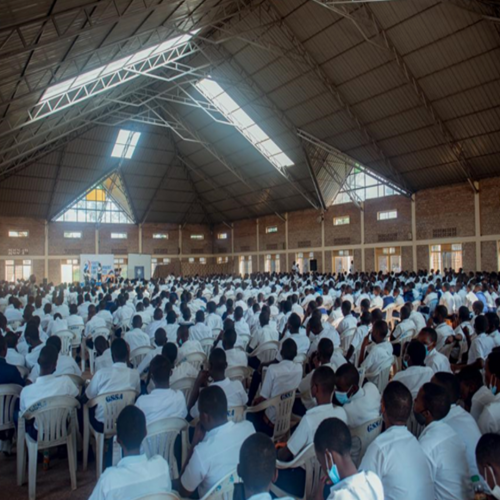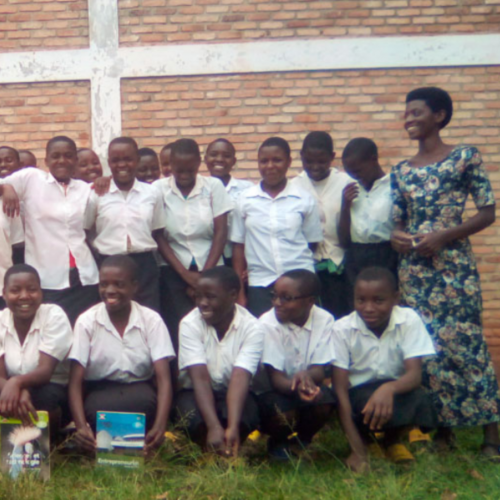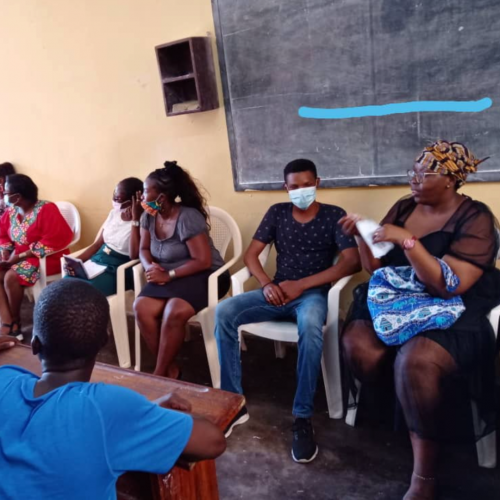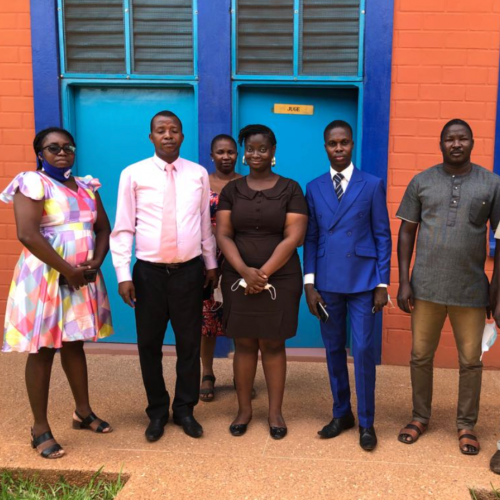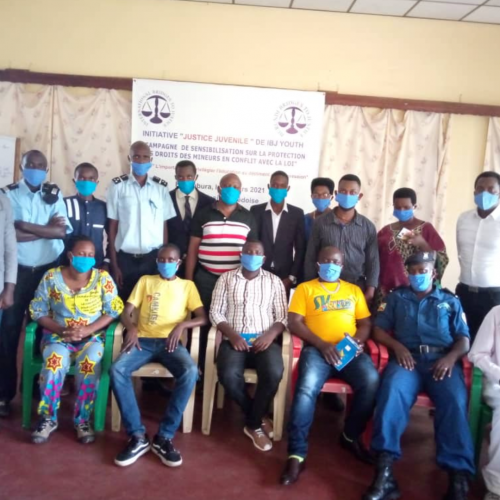-

- The IBJ Youth Justice Champion in Rwanda works with schools to host crime prevention events with youths in the Eastern Provinces of Rwanda. The organizers of these events have founded a group under the official name of “Youth Empowerment for Justice.” They have a social media presence and help reduce juvenile incarceration in the country.
Children in Conflict with the Law
Home > Children in Conflict with the Law
Children in Conflict with the Law
The Problem
Every day in countries around the world, IBJ steps in to defend the rights of children in conflict of the law. UNICEF estimates that 1 million children are detained each year but the true number is likely much higher, given poor record keeping in prisons in many countries. The effect of incarceration on the lives of children is catastrophic – removing them from education and from their families, and often creating lifelong trauma. Without due process, most of these children will languish in detention while awaiting trial, sometimes for years, lost in broken justice systems.
Offenses often committed by children, such as begging or minor theft, are petty crimes that should not result in prison time. In many countries, minor offences such as the possession of alcohol or tobacco, or the violation of truancy and curfew laws, systemically land children in jail. Sadly, these kinds of laws disproportionately affect children who are poor, homeless or mentally ill, as well as children who have been trafficked for sex work. Adults, too, often exploit marginalized children to commit crimes. This criminalization of the misfortune of children imperils their already desperate fight for survival. Under the auspices of immigration control, migrant children are also excessively detained, frequently for extended periods of time. There is also evidence that children belonging to minority religious or ethnic groups are more likely to be incarcerated.
Children’s fundamental rights and freedoms are violated in jail and prison environments; their physical and mental development suffers from the effects of overpopulation, malnutrition, rampant infectious diseases, trauma, torture, poor sanitary conditions, and limited or nonexistent access to health care and education. Tragically, the sexual abuse of children by police, other detainees and staff also often occurs in detention facilities. Perversely, imprisonment is often disguised under the cloak of treatment or support.
A worrying practice in many countries is that teenage children are often tried as adults, due to systemic flaws in the juvenile justice process. This is made worse in countries where identity documents, such as birth certificates, are hard to obtain.
IBJ Solution
IBJ’s preventative model works to ensure that all juvenile accused have access to competently trained legal representation at the earliest possible stage. This helps guarantee that children accused of crimes will be given their due process rights under the law.
Key areas of IBJ’s work on behalf of juveniles are described below.
Training lawyers to defend juveniles
IBJ provides juvenile defense training to lawyers around the world. For example, in China, IBJ has trained both Chinese and Mongolian lawyers on such issues as, trial preparation of juveniles, dealing with false confessions, and cross-examination of juveniles. 95% of participants in IBJ’s specialized training in China have confirmed they are better able to represent their juvenile clients as a result. In Burundi, in partnership with the Burundi bar association, IBJ training on defense strategies for children in conflict with law has been attended by lawyers and IBJ youth justice champions and led by senior lawyers with decades of experience in protecting juvenile rights.
Representing juveniles at trial
IBJ-trained defenders around the world represent juveniles daily. For instance, IBJ’s team in the DRC represents incarcerated children on an ongoing basis and has determined that as many as 62% of their juvenile clients have been wrongly accused or placed in unjustified detention. Li, an IBJ criminal defense attorney from Fujian Province, provides an illustrative example of work to defend children in conflict with the law. Li regularly conducts independent investigations and collects evidence to help defend her juvenile clients, often resulting in their charges being dropped. Li shares her sense of pride in her work:
“I am most proud of the trust I have earned from my clients, as well as praise for my work from both prosecutors and judges. Prosecutors and judges are willing to listen to me because of my careful drafting of defense statements and my thorough analysis of disputed points. My young clients treat me not only as a lawyer but as a friend, and stay in touch with me, allowing me to watch them grow alongside them.” -Li
Raising awareness around juvenile justice
To help bring about systemic level change, IBJ conducts widespread awareness-raising on the rights of juvenile accused. For example, in the DRC, IBJ’s sister organization, DRCBJ, partnered with Bukavu’s tribunal for youth and the prisons themselves to hold a seminar on the legal rights of juveniles for an audience of juvenile detainees. More than 50% of these juveniles stated that they had experienced some form of physical or sexual abuse during their incarceration. DRCBJ gave these youth the option to request legal aid and has provided many of them with legal assistance.
In China, one of IBJ’s JusticeMaker Fellows has promoted juvenile justice awareness by writing up and sharing juvenile case summaries, producing annual reports on juvenile justice, and holding legal awareness seminars on juvenile justice with the general public and lawyers. One of her online publications about issues pertaining to incarcerated children has reached over 5 million people. Her work has resulted in a team of pro bono lawyers willing to defend juveniles.
Changing laws and practices to protect juveniles
IBJ works with authorities to put in place better practices and regulations concerning youth in conflict with the law, including: finding alternatives to incarceration for youth, reducing pre-trial detention for juveniles, and improving detention facilities for youth. As a result of IBJ’s work on juvenile justice in China and our cooperation with the Chinese Ministry of Justice, in 2012, the Chinese Criminal Procedure was amended to included several provisions specifically advocated by IBJ; these included requiring juvenile suspects to be accompanied by an “appropriate adult” throughout the course of legal proceedings, excluding the admissibility of illegally obtained evidence, expanding the role of defense attorneys at early stages of a case, and developing procedures for special juvenile cases. All of these developments are crucial to securing juvenile’s rights in the judicial system and now impact millions of youth in China.
Partnering with the police and detention facilities
To best serve detained children, in every country where we are present, IBJ works closely with the police and detention/prison officials. For example, in Burundi, IBJ’s sister organization, BBJ, tracks arrests in real-time through a partnership with Judicial Police Headquarters, which often notifies BBJ when an arrest is made and permits a lawyer to be dispatched to the holding cell before police are can interrogate the detainee. This kind of access is crucial, as it allows IBJ to inform juvenile detainees of their legal rights and prevents interrogative torture in detention. As a result of this sort of cooperation, in countries around the world, many juvenile detainees are immediately released from police lock ups and prisons once IBJ intervenes to protect their rights.
UN Sustainable development Goals (SDGs)
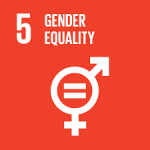
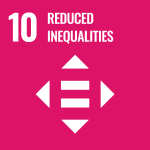
IBJ contributes to SDG 16 – specifically Target 16.3, which seeks equal access to justice for all – by protecting and advocating for due process rights.
IBJ contributes to SDG 10 – offering legal representation to poor children who can’t afford a lawyer.
IBJ contributes to SDG 5 – empowering girls to become future leaders and ensuring girls receive equal protection before the law.
IBJ contributes to SDG 4 – by ensuring children don’t spend their pivotal years behind bars and can access learning opportunities.
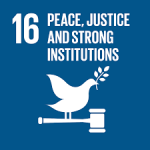
Issues and Illustrative IBJ Cases
The illustrative cases below help show areas where IBJ intervenes. Names have been changed to protect clients’ privacy.
Absence of Evidence – In many nations, children are held in custody despite unsubstantiated or even non-existent evidence
LS’s Story: LS, a child from the DRC, was arrested after being accused by his father — under the influence of his stepmother — of stealing the house’s solar panel. Conscious of his innocence and fearing years in prison, LS attempted suicide in police custody. After three days in detention, one of IBJ’s lawyers offered LS free legal representation, providing him reassurance that he would be properly defended throughout the coming proceedings. At the police station, LS’s lawyer argued that the child was being illegally held and should be freed given the lack of evidence justifying his detention. Although these arguments failed with the police, LS’s lawyer was not discouraged and continued to fight the child’s case. Finally, after six months of detention, LS pleaded not guilty in court, with his lawyer’s help. The court acquitted him of the charges.
Lack of legal representation – Children in many countries often do not have access to competent legal representation.
BW’s Story: In 2020, DRCBJ received a request for legal aid for a child named BW, who had been falsely accused of murder. Having already been held for six months in police detention and handed over to prosecutors without legal representation, BW was liable to be tried as an adult. With our intervention, BW was instead transferred to Bukavu’s juvenile tribunal. After a delay due to COVID-19, in 2021, BW and his lawyer pleaded not guilty in court, and he was finally declared innocent.
Coercion of children into crime by adults –Frequently, adults blame or exploit children to commit crimes, condemning them to years behind bars
RB’s Story: An IBJ partner attorney in China recently defended a 17-year-old boy, RB, who had been falsely accused of attempted rape. As RB’s parents were divorced, and his father was a migrant worker who lived in another province, RB lived with his grandparents. His family was very poor, and he was not well cared for by his grandparents. Due to this lack of attention and without proper role models, young RB frequently visited a local internet bar, where he made contact with adults who were not a good influence in his life. One night, after they left the internet bar, the adults assaulted a woman who reported the incident to the police. The police arrested RB due to his association with the adults who had committed the offense. The lawyer successfully defended RB against an attempted rape charge after extensive interviews to establish the facts.
Detention among adults – In many countries, children may be held in detention with adults, which presents numerous safety risks.
CC’s Story: In April 2021, a 16-year-old girl named CC was arrested in the DRC for wearing clothing that had allegedly been stolen. Because of a lack of specialized detention facilities for children, CC had been placed in detention among adults. Without her parents or a lawyer present, she was processed at the police station and transferred to prosecutors who sent her to a tribunal 30 kilometers away to be tried by a provincial judge. After participating in a DRCBJ rights awareness campaign in prison, CC requested legal aid from DRCBJ, which provided her with a lawyer. At her hearing, DRCBJ’s lawyer successfully argued for CC’s freedom on the grounds that, as a child, it was most appropriate for her to be in a home environment with her family, explaining that CC had bought a garment which she did not know had been stolen. The tribunal ruled in favor of this argument, and CCI was freed and returned to her family after 38 days in detention.
